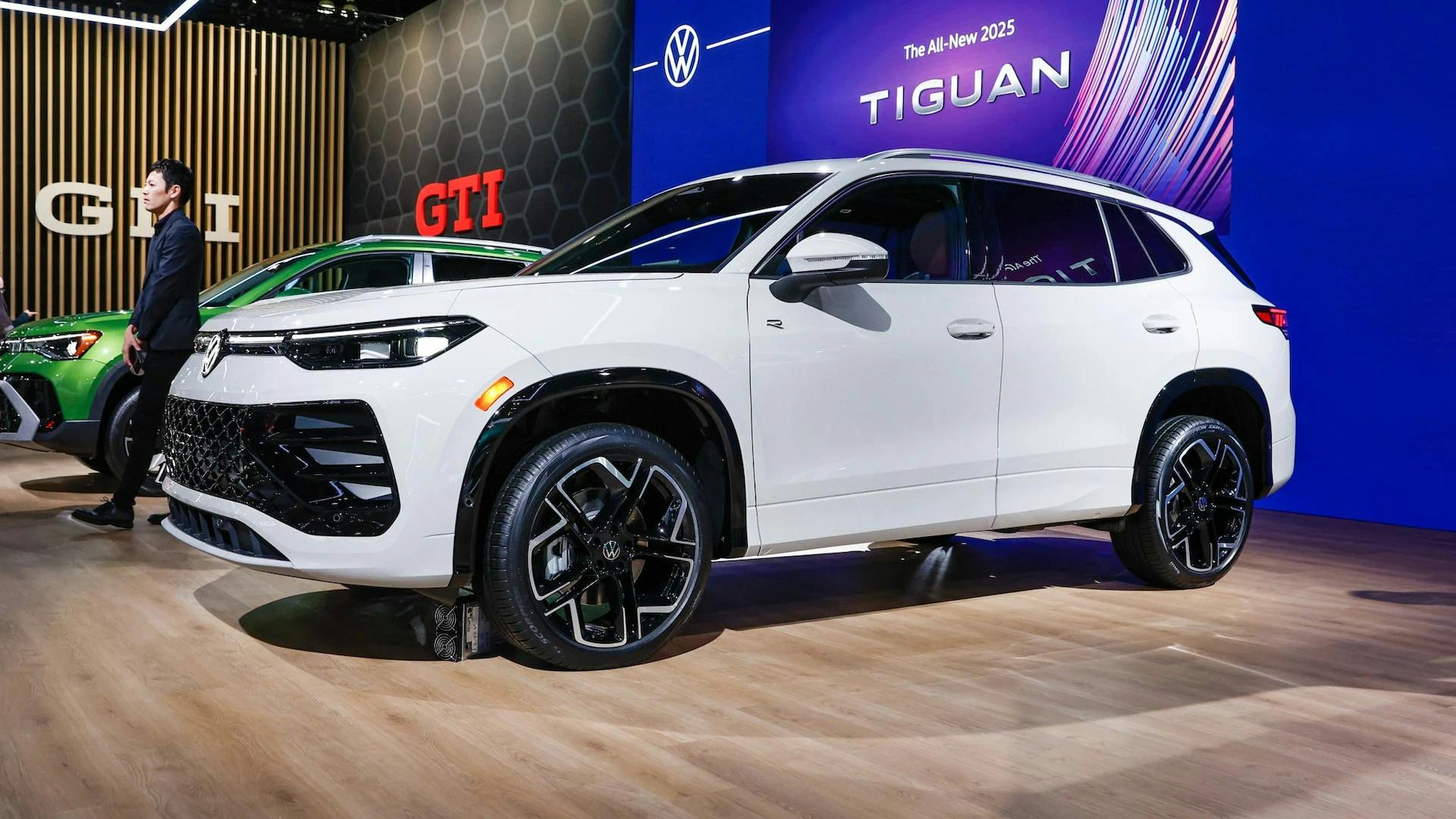
Hybrid Hopes: VW's Roadmap for SUVs
Volkswagen has been steadily pushing toward electrification, with models like the ID.4 electric SUV and the recently debuted ID. Buzz capturing attention. However, North American drivers craving hybrid options have been left wanting—until now. Volkswagen is preparing to introduce hybrid technology to its SUV lineup in the region, focusing on its best-selling models, the Tiguan and Atlas. However, the road to hybridization won’t be immediate.
Where Are the Hybrids?
Despite their absence from Volkswagen’s current North American lineup, hybrids are on the agenda. Martin Sanders, a key executive in VW Passenger Cars, confirmed the growing demand from dealerships for hybrid options. These requests are being heard loud and clear.
Volkswagen already offers hybrid and plug-in hybrid versions of the Tiguan in Europe, and the Jetta once featured a hybrid variant in North America. The automaker has the technical capability and experience to deliver, but decisions are still being made about whether the North American market will receive standard hybrids or plug-in hybrids (PHEVs).
The uncertainty stems partially from the unpredictable regulatory environment in the United States. This makes it challenging for Volkswagen to commit to one approach without further clarity. Andrew Savvas, VW’s U.S. sales head, revealed that both options are actively being explored.
The New 2025 Tiguan: A Hybrid Wait
Volkswagen recently unveiled the third-generation 2025 Tiguan at the Los Angeles Auto Show. This compact SUV is VW’s global bestseller, accounting for a significant portion of the brand’s North American sales. However, the new Tiguan will initially launch in North America with only a gasoline-powered drivetrain.
Even with growing competition in the hybrid compact SUV space, a hybrid Tiguan won’t arrive until a mid-cycle refresh—likely in the 2027 model year. This delay means that the Tiguan hybrid, which could have bolstered VW’s presence in a competitive market segment, will join later than hoped.
Given that compact SUVs make up 25% of the North American market and that most competitors already offer hybrids, this is a missed opportunity in the short term. Yet, Volkswagen’s commitment to hybridization signals that it intends to remain competitive in the future.
Atlas Hybrid: Bigger Plans, Bigger Impact
Volkswagen’s hybrid ambitions extend beyond the Tiguan. The larger VW Atlas SUV will also get a hybrid option, but not until 2026, when the Atlas undergoes a full redesign. This redesign will introduce a single hybrid powertrain option, which may include one of the following:
- A traditional hybrid
- A plug-in hybrid (PHEV)
- An extended-range hybrid (E-REV), where the gasoline engine functions as a generator for the electric motor
Volkswagen’s R&D head, Kai Grunitz, suggested that extended-range hybrids could serve as a useful bridge between internal combustion engines and pure electric vehicles, especially for larger vehicles like the Atlas. However, these technologies are still in development, with extensive U.S. testing required before they hit the road.
Subcompact and Smaller SUVs: What About the Taos?
While the Tiguan and Atlas take priority, smaller models like the subcompact VW Taos aren’t currently slated for hybridization. The decision hinges on future regulatory changes, consumer demand, and technological advancements. Grunitz noted that smaller vehicles may be better suited as pure electric options in the long term, as opposed to hybrid or extended-range setups.
Why Hybrids, Why Now?
Volkswagen’s pivot to hybrids reflects the market’s current reality. While the company initially believed that internal combustion engines (ICE) would phase out quickly in favor of EVs, demand for EVs hasn’t grown as fast as anticipated. As a result, VW continues to allocate nearly half of its product development budget to ICE vehicles.
Executives acknowledge that hybrids offer a middle ground, appealing to consumers not yet ready to fully transition to EVs. This pragmatic approach ensures that Volkswagen can stay competitive while aligning with evolving consumer preferences and regulatory landscapes.
What’s Next for Volkswagen?
As Volkswagen gears up for hybridization in North America, here’s what to expect:
- Tiguan Hybrid Arrival: Likely as part of a mid-cycle refresh around 2027.
- Atlas Hybrid Debut: A redesigned hybrid or PHEV model in 2026.
- Potential E-REV Technology: Extended-range hybrids could become a reality for larger vehicles.
- Regulatory Influence: Future U.S. policies will play a significant role in shaping VW’s hybrid offerings.
- Market-Driven Decisions: Smaller models like the Taos may or may not adopt hybrid tech depending on consumer demand and market trends.
Volkswagen’s hybrid plans mark an exciting evolution for its North American SUV lineup. Although delays mean consumers won’t see these models immediately, the upcoming Tiguan and Atlas hybrids reflect the automaker’s commitment to bridging the gap between ICE vehicles and a fully electric future. For now, enthusiasts will need to wait patiently as VW charts its path toward hybridization. The payoff, however, promises to be worth it, with innovative technology and greener driving options on the horizon.

 Volkswagen ID.4
Volkswagen ID.4